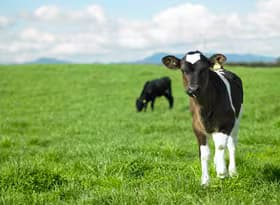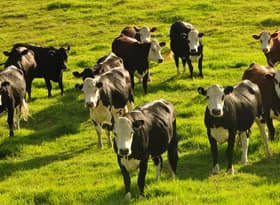Should farm owners look and sound like New Zealanders?
As a result of fears expressed about Hong Kong investors bidding for the Carfare farm holdings, the major political parties are attempting to one-up each other in relation to regulations on foreign ownership of farmland. The National Government has intensified the screening of overseas applications for the purchase of farmland, opening the way for more ministerial intervention in sales processes involving foreigners. The Labour Party has now intimated that all farmland sales to foreigners should be banned. New Zealand is a relatively young nation whose wealth is founded on exploiting land. Our economic prospects are still overwhelmingly dependent on selling farm produce. We have a sentimental attachment to farming. It is unsurprising that New Zealanders are sensitive to what happens to farmland.
Does allowing foreigners to purchase farmland endanger the things we hold dear? Overseas investors cannot ship land back to their home countries. Their use of farmland needs to comply with all New Zealand’s laws and regulations, including the Resource Management Act and city and regional council land use regulations. There is no evidence that shows foreign farm-owners are any more or less reasonable than their Kiwi counterparts with regard to allowing through-access to public land and waterways, looking after the environment, or ensuring their farms are sustainable.
Fear of reduced economic control of farmland and the farming industry, including control of primary processing, is no doubt paramount for many opponents of sales to overseas interests. The main argument is that the weight of foreign capital drives up farm prices, induces New Zealand farmers to sell their properties, and makes owning a farm an unaffordable dream for New Zealanders. There is no doubt that allowing foreigners to buy farmland results in higher prices than if only New Zealanders are allowed to buy. However, higher land prices are a benefit to existing farmers, who have the option of selling their land to realise capital gains. If they invest wisely, this will generate good returns for themselves and provide capital for productive enterprises elsewhere in the New Zealand economy. Alternatively, existing farmers can take advantage of higher land values to leverage improvements to their land or production techniques, thus generating extra income down the track.
As for the dreams about owning a farm that has always been just a dream for newest Zealanders. The reality is that to own a productive farm requires substantial capital. Family-owned farms are a legacy of our colonial past. The trend over time will be for more consolidation of farm holdings as this offers potential for greater efficiencies. This trend will put farm ownership further out of reach of the "ordinary Kiwi", regardless of whether foreigners are allowed to buy farmland.
Although the New Zealand farming sector prides itself on being good at what it does, capital is often lacking for expansion of its products into offshore markets. Foreign involvement in the farming sector provides New Zealand farms and related industries opportunities for collaborations and joint ventures with overseas firms. This can increase the funding available for R&D and the development of new products. It can also assist with the commercialisation and distribution of exports overseas. These are important if New Zealand wants to expand its exports and increasingly move them up the value chain.
Is there a danger that New Zealand farmers could be marginalised if foreign interests begin to dominate farm ownership in combination with significant ownership of downstream processing? New Zealand’s relatively relaxed regulation of farm sales to foreigners up until now has not resulted in large-scale overseas ownership. According to Statistics New Zealand, in 2009 only 0.5% of agriculture, fishing and forestry enterprises, covering 2% of all employees in the industry, had foreign equity holdings of more than 50%. Conversely, 99.2%of all agriculture, forestry and fishing enterprises, covering 96.3% of employees in the industry, had foreign equity holdings of less than 1%. These foreign ownership shares have barely changed over the past nine years. Overseas Investment Office statistics show that overseas investors purchased a net stake in 22,345 hectares of land in the year to December 2009. However, most of the land purchased by overseas interests was connected with energy and forestry holdings. Given the deeply ingrained culture of family farm ownership and the overwhelming influence of Fonterra in the dairy industry, there seems little chance foreigners will come to dominate the New Zealand farming sector.
A tougher stance on overseas ownership of farmland would be self-defeating. Farm prices would fall, thus reducing the wealth of existing New Zealand farmers. The farming sector would miss opportunities for further connections and expansion in offshore markets. In addition, a signal would be sent to overseas investors that their capital is accepted in this country selectively and grudgingly. In a global market with intense competition for capital, potential investors in New Zealand may increasingly look elsewhere for their returns. New Zealand borrows upwards of $5 billion a year from overseas lenders to finance national spending. Turning away overseas investors is not a route to brighter economic prospects.






